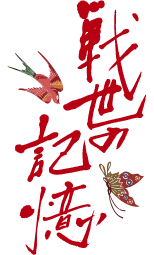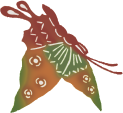
“Evacuation to Taiwan”
“Evacuation to Taiwan”
Toru Ishimine, 84 years old
(Place of birth: Nagahama, Irabu-mura-Aza, Miyako-gun, Okinawa Prefecture)
Before the war started, I was enrolled in public elementary school. When I was in 5th grade, the war started and my family evacuated to Taiwan.
The evacuation ship arrived at the Port of Keelung via Ishigaki Island. From there, we rode on a train and went to Guishan (today Guishan District), Taoyuan County in Taiwan and started our lives as evacuees. In a large thatched roof house with a knitted bamboo floor.
Next to the place where we lived, there was a company which was producing tea leaves. The district was occupied by Japanese soldiers who lived there.
We talked with the soldiers often, and when they had get-togethers they invited us and we had fun playing and talking with the people.
At the elementary school in Taiwan, one teacher was in charge of 1st grade to 5th grade. We, evacuees from Japan, studied together with Taiwanese students.
One day while we were eating outside the house, a postman came to our house and delivered a telegram. I remember that as soon as my mother and grandmother saw it, they were overwrought with emotion and broke down in tears. It might have been about a draft letter for my father.
(What happened to your father after that?)
It seemed he went to the front and came back home. I’ve heard that my brother was born at that time. Then he went to the front again, but did not come back.
My mother told me that my father had been shot in the arm, though I am not sure whether it was his right arm or left arm. I was told that the army surgeon said to him, “Go back home,” but my father said, “There is no meaning for me to return home if I was shot in the arm. I’d like to continue to fight here to contribute to the country.” And he fought until he died, that is what I’ve heard.
(After the War)
We made our return to Japan by traveling from Hsinchu to the Port of Su'ao in a freight train. There, our family of three spent a night next to a concrete wall without a roof or anything. Then we came home in a black market withdrawal vessel named “Umemaru.”
Although the war was over, life after we came home was really tough. Due to the food shortage after the war, it was extremely difficult to survive.
(Looking back at the war)
I do not want another war. There should not be these kinds of miserable lives caused by war.
There is a counting rhyme of war that has 15 verses, but I like the lyrics in the 9th verse. It reads, “I’m willing to die, but how can my wife and children to be left behind live their lives?” I believe the soldiers held on in battle until their deaths by thinking about their families. When I think about those soldiers dying in battle while thinking about leaving their families behind, I cannot read the lyrics without tears in my eyes.
Toru Ishimine, 84 years old
(Place of birth: Nagahama, Irabu-mura-Aza, Miyako-gun, Okinawa Prefecture)
Before the war started, I was enrolled in public elementary school. When I was in 5th grade, the war started and my family evacuated to Taiwan.
The evacuation ship arrived at the Port of Keelung via Ishigaki Island. From there, we rode on a train and went to Guishan (today Guishan District), Taoyuan County in Taiwan and started our lives as evacuees. In a large thatched roof house with a knitted bamboo floor.
Next to the place where we lived, there was a company which was producing tea leaves. The district was occupied by Japanese soldiers who lived there.
We talked with the soldiers often, and when they had get-togethers they invited us and we had fun playing and talking with the people.
At the elementary school in Taiwan, one teacher was in charge of 1st grade to 5th grade. We, evacuees from Japan, studied together with Taiwanese students.
One day while we were eating outside the house, a postman came to our house and delivered a telegram. I remember that as soon as my mother and grandmother saw it, they were overwrought with emotion and broke down in tears. It might have been about a draft letter for my father.
(What happened to your father after that?)
It seemed he went to the front and came back home. I’ve heard that my brother was born at that time. Then he went to the front again, but did not come back.
My mother told me that my father had been shot in the arm, though I am not sure whether it was his right arm or left arm. I was told that the army surgeon said to him, “Go back home,” but my father said, “There is no meaning for me to return home if I was shot in the arm. I’d like to continue to fight here to contribute to the country.” And he fought until he died, that is what I’ve heard.
(After the War)
We made our return to Japan by traveling from Hsinchu to the Port of Su'ao in a freight train. There, our family of three spent a night next to a concrete wall without a roof or anything. Then we came home in a black market withdrawal vessel named “Umemaru.”
Although the war was over, life after we came home was really tough. Due to the food shortage after the war, it was extremely difficult to survive.
(Looking back at the war)
I do not want another war. There should not be these kinds of miserable lives caused by war.
There is a counting rhyme of war that has 15 verses, but I like the lyrics in the 9th verse. It reads, “I’m willing to die, but how can my wife and children to be left behind live their lives?” I believe the soldiers held on in battle until their deaths by thinking about their families. When I think about those soldiers dying in battle while thinking about leaving their families behind, I cannot read the lyrics without tears in my eyes.


